EFI Accelerator: Kenyan Designers join
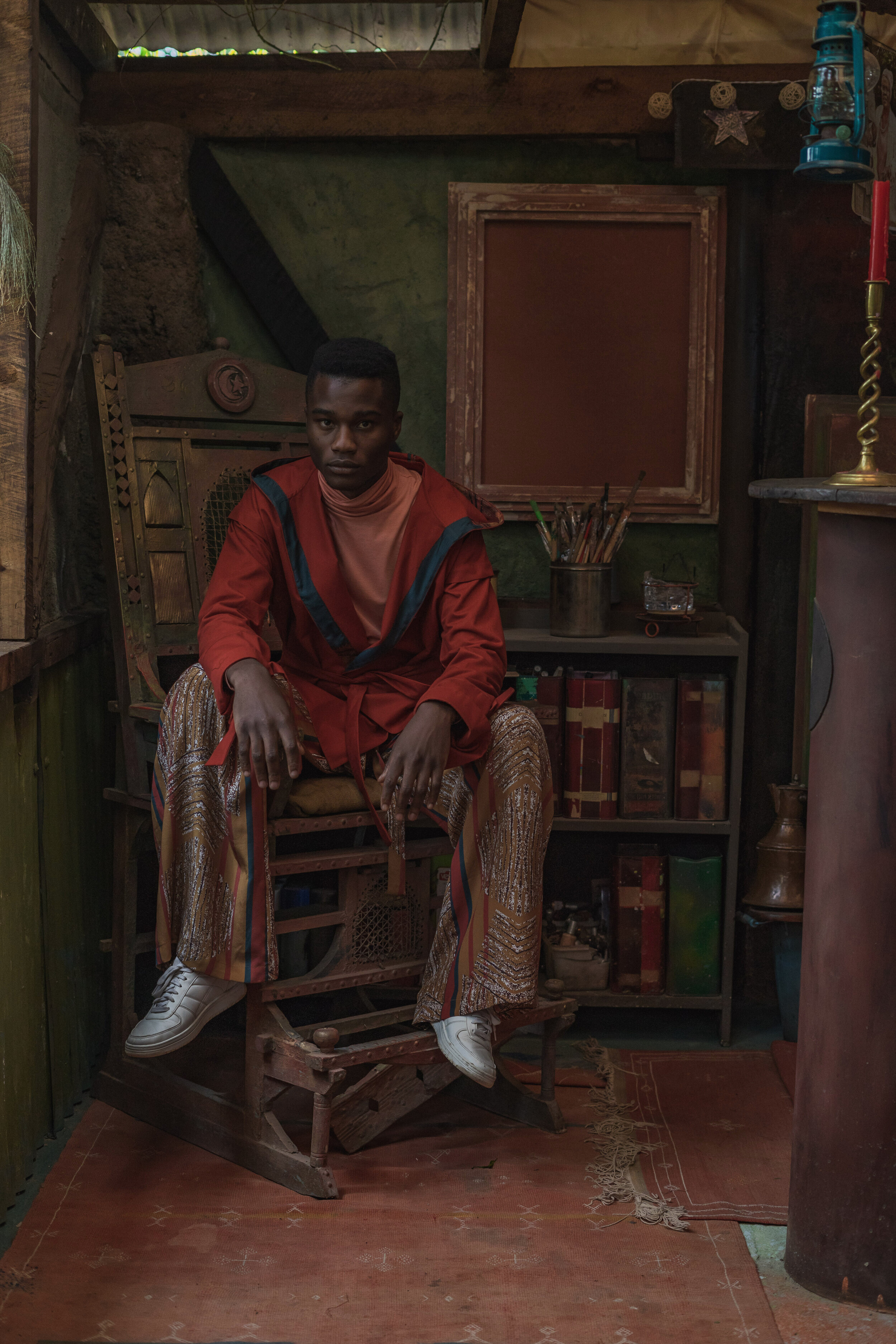

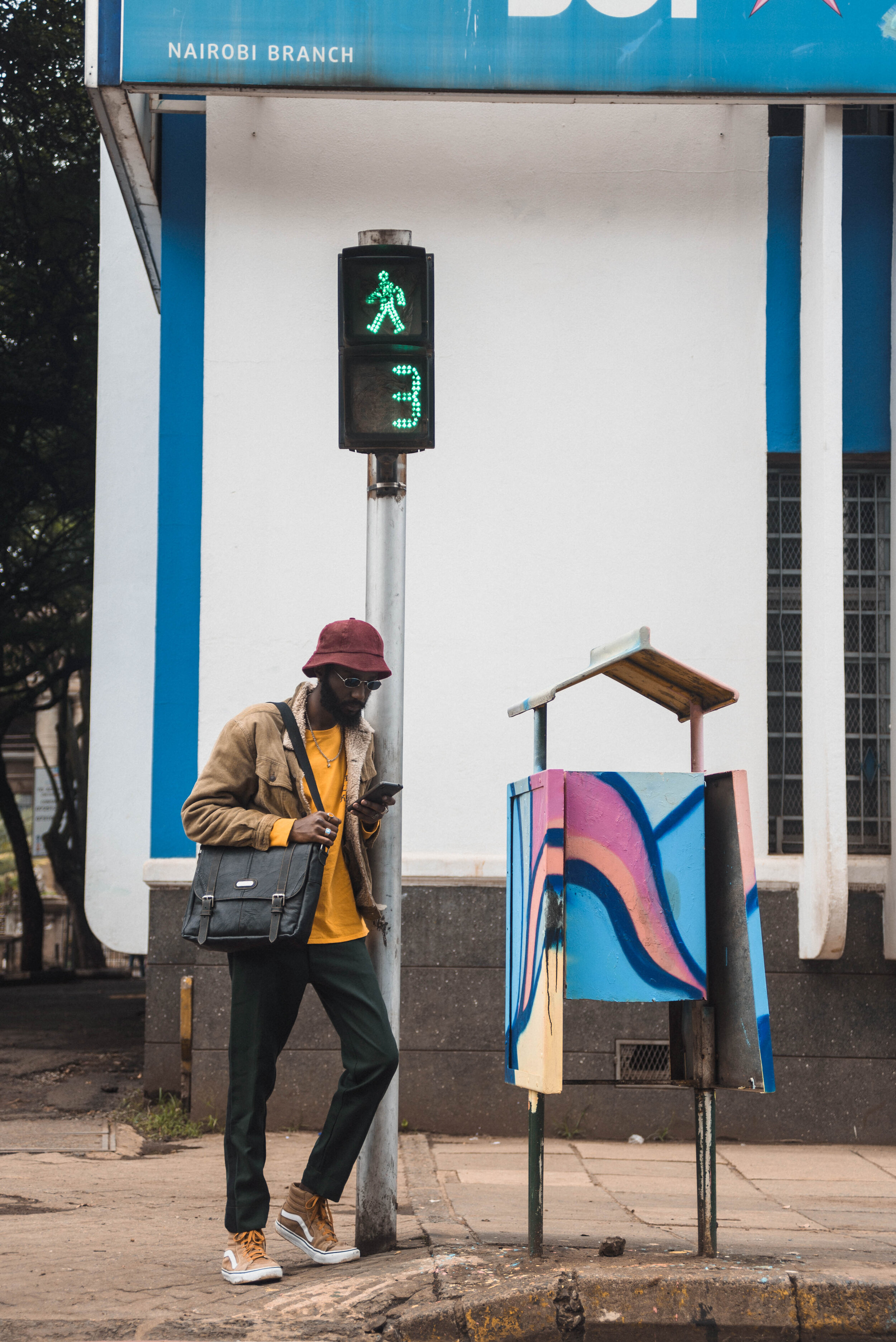
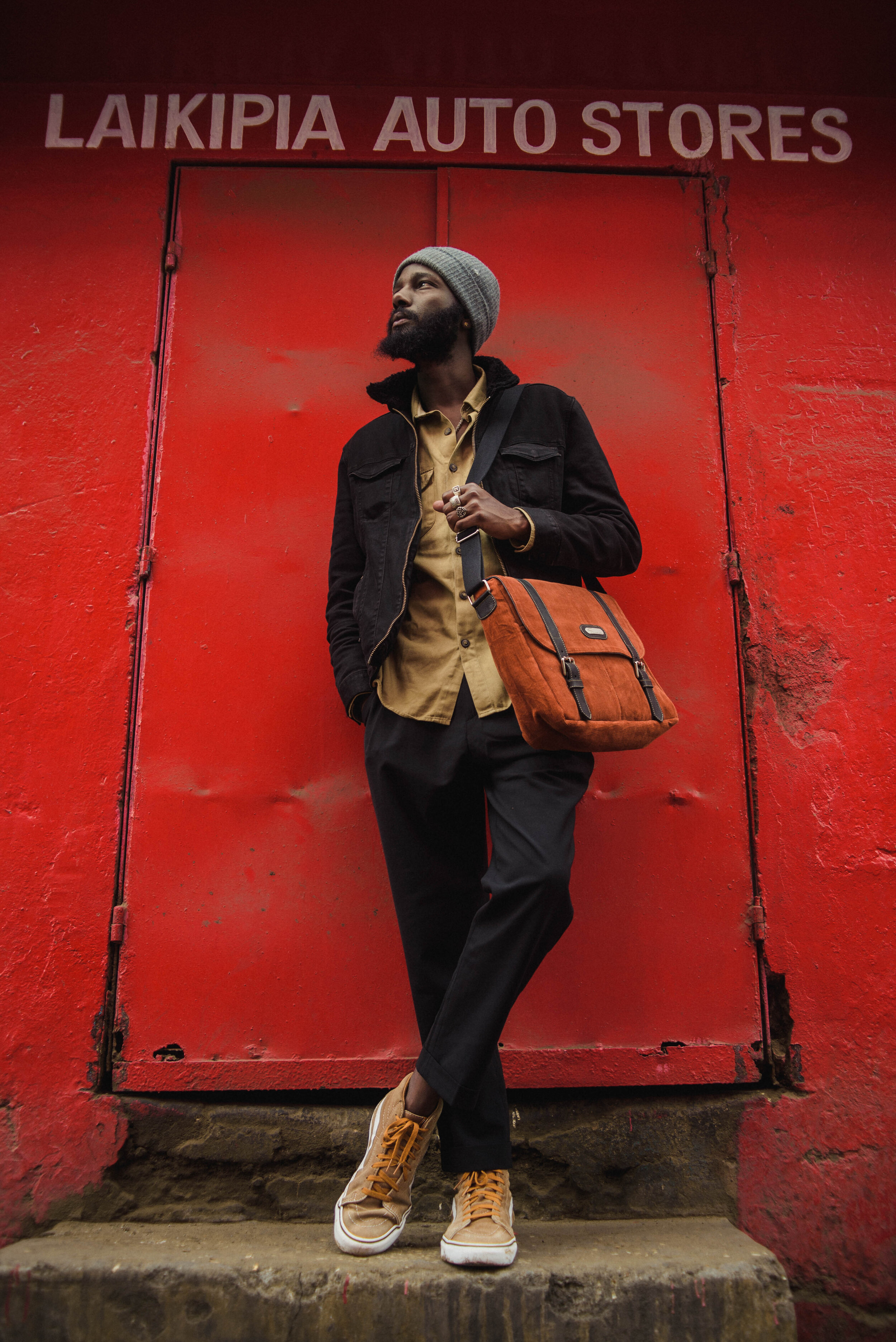
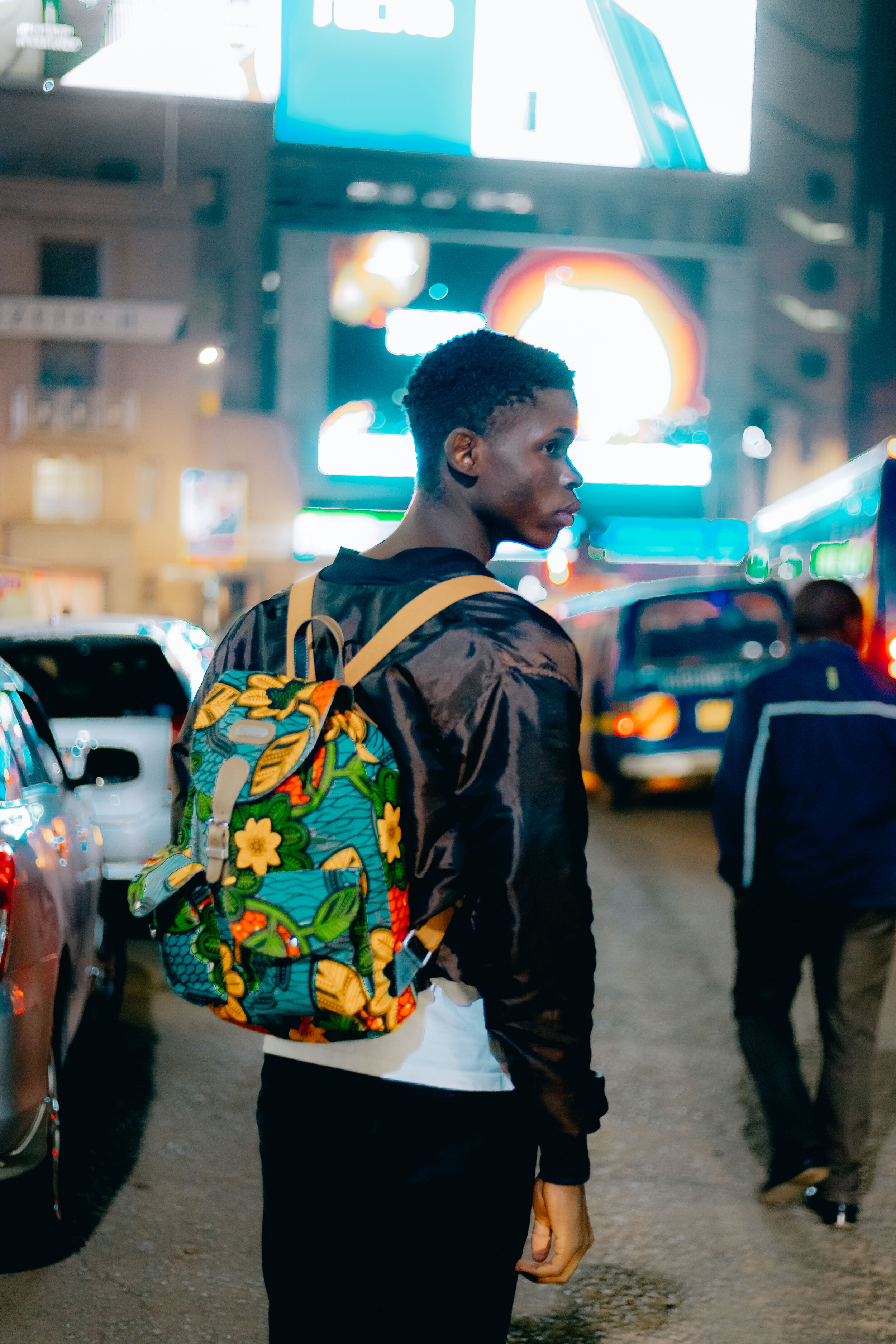
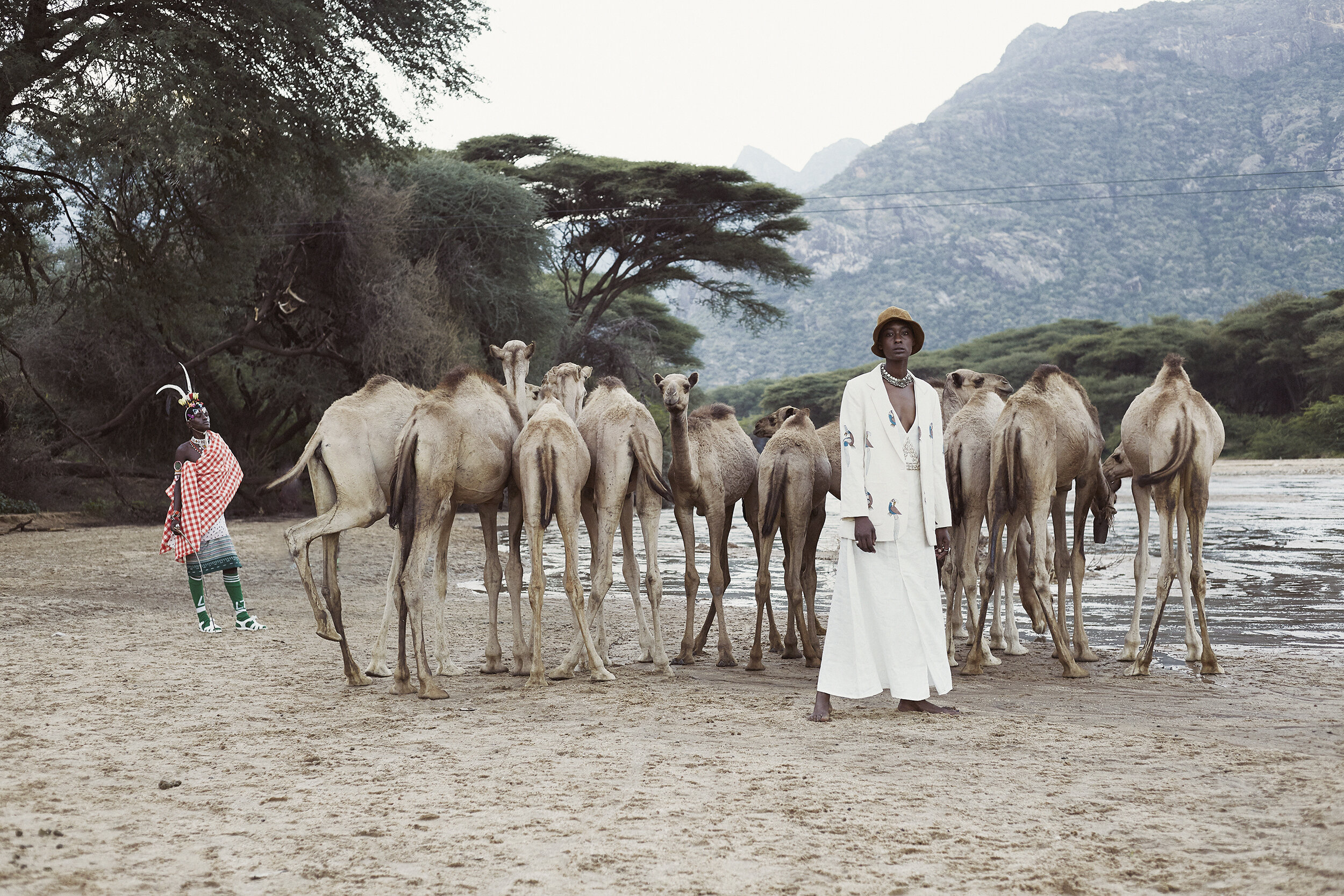

Gikomba is East Africa’s largest open air market, a colourful, frenetic mass of people and stalls of. It was while here, rummaging among heaps of oversize and discarded denim outfits that Mohammed Awale came up with the idea of Suave Kenya, slick bags and backpacks made from fabrics found at the market. “Approximately 100,000 tonnes of used clothing streams into Kenya every year, mostly from the USA,” says Awale. “Clothing donated to charities like goodwill, that have already been picked out by thrift enthusiasts and dollar stores and the rest is exported to Africa, which is considered the final dumping site. This is where we come in.”
Over the years, Suave Kenya has established contacts with vendors who notify them whenever they have an excess items that haven’t been purchased in a while.:“These clothes would normally end up in a landfill, but they can still fulfill a purpose when they’re repurposed and given a new lease of life. Our bags are usually the perfect fit.” Along with Katush by Katungulu Mwendwa and HAMAJI, Sauve Kenya is now one of three Kenyan designers chosen to participate in the Ethical Fashion Initiative’s second Accelerator programme, designed to highlight, support and promote unique design talent within Kenya.
This year’s chosen designers share three things in common: each works as sustainably as possible, using reclaimed and organic fabrics whilst drawing inspiration from the culture and vibrancy of their Kenyan homeland. Launched by Louise Sommerlatte in 2017, HAMAJI, ‘nomad’ in coastal Swahili, aims to preserve ancient textile traditions and nomadic craftsmanship, in collaboration with local artisans. Flowing silhouettes are created from vintage textiles or natural fibres. Ideas of identity and an early introduction into artisanal skills by her late grandmother influence Mwendwa, who works with local communities to create contemporary interpretations of traditional aesthetics.
The Ethical Fashion Initiative has been helping bring African Fashion Design to a world stage since 2013, introducing designers to events such as Vogue’s Fashion Night Out, Pitti Uomo and Altaroma. “The continued development of our designer accelerator programmes in Africa, provide a new generation of African design talent the opportunity to engage with the international market,” says EFI head and founder Simone Cipriani. “Through education and mentoring we seek to equalise the playing field, giving exposure to the incredible talent that exists on the continent. Each region in Africa has its own unique creative voice.
“Being able to launch a programme dedicated to Kenya - the country where EFI began its journey and where it has some of the most beautiful collaborations - is a wonderful opportunity to spotlight the creative visionaries that set this country apart,” he continues. Those visionaries will be well taken care of. The programme focuses on the specific needs of African fashion brands, with a business development approach that prepares beneficiaries to become investment-ready. The programme will help the selected brands expand supply chains and scale up production, sourcing new products and developing production teams.
The designers are thrilled. “I feel hugely honoured to have this opportunity to expand my knowledge and be mentored in the development of my brand in a sustainable approach with international and local expertise in Kenya” says HAMAJI. “There have been times where it has felt completely overwhelming to have to learn to wear a thousand hats with limited guidance,” adds Katush by Katungulu Mwendwa. “Like an answer to a prayer often said, this comes as a strong statement of encouragement.” Awale of Suave says: “I look forward to learning from the vast EFI network.”